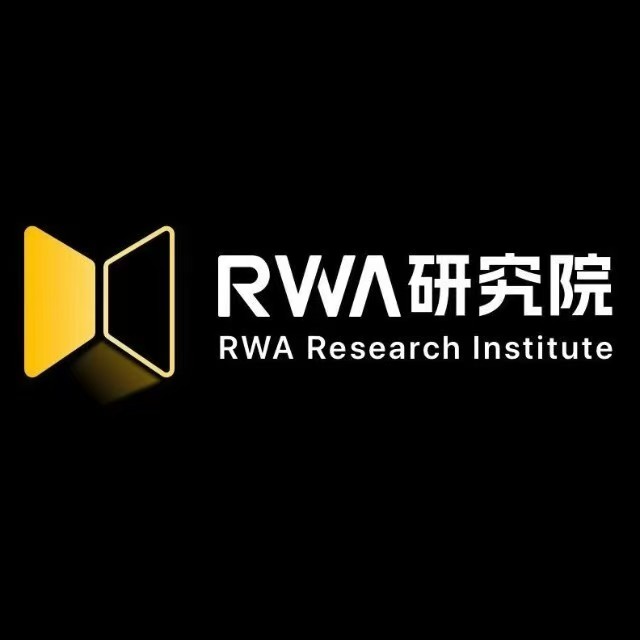In July 2025, the U.S. Congress successively advanced and passed three heavyweight legislative bills: the GENIUS Act, the CLARITY Act, and the Anti-CBDC Monitoring National Act, marking a historic step in digital asset regulation.
Wang Shanliang, Director of the Web3 Research Center of Dacheng Financial Committee and Dean of the Legal Compliance Institute of the RWA Research Institute, pointed out in an exclusive interview that these three bills complement each other, aiming to use stablecoins as a lever to build a new digital dollar order, while opening channels for decentralized finance (DeFi) and stock tokenization, potentially triggering a global asset revolution "beyond trillions".

Three Laws in Coordination: Establishing a New Digital Dollar Hegemony
Wang Shanliang noted that the GENIUS Act, CLARITY Act, and Anti-CBDC Monitoring National Act actually form a unified legislative system. They complement each other, jointly serving the strategy of continuing dollar hegemony anchored by stablecoins.
Among them, the GENIUS Act explicitly supports the issuance and use of stablecoins pegged to the U.S. dollar through legislation, aiming to consolidate the dollar's dominant position in the global payment system. It is worth noting that this bill has been passed by both houses of Congress and signed into law by President Trump.
"Regardless of whether cross-border payments bypass SWIFT, they cannot bypass the dollar standard," Wang Shanliang stated, "The global application scenarios of stablecoins are rapidly expanding, with more and more national institutions and individuals viewing them as a tool to hedge against local currency depreciation."
CLARITY Act: A "Constitutional Moment" Overturning the Old Order
Compared to the well-known stablecoin bill, Wang Shanliang believes the CLARITY Act has a more far-reaching impact. This legislation, known as the "Clarity Act," divides digital assets into two categories, clearly distinguishing between securities and commodities, ending the enforcement chaos caused by long-standing regulatory ambiguity.
"This is equivalent to a constitutional moment in the digital asset field," Wang Shanliang emphasized, "It will fundamentally weaken the SEC's enforcement power and provide a definite compliance path for project parties, exchanges, DeFi protocols, etc., avoiding huge legal risks arising from regulatory gray areas."
More disruptively, this act may trigger a financial structural revolution. Wang Shanliang pointed out that in the future, the U.S. securities market may no longer rely on centralized exchanges like Nasdaq and NYSE, and large enterprises might directly issue equity in token form and trade 24/7. Platforms like Robinhood are achieving all-day circulation of U.S. stocks through tokenization.
He stated: "Once token issuance is not for fundraising, it can be exempt from SEC regulation. Companies like Tesla could completely delist and switch to tokenized trading."
Anti-CBDC Act: An Institutional Declaration of Digital Sovereignty
In contrast to the first two encouraging legislative acts, the Anti-CBDC Monitoring National Act has a clear restrictive character. The bill explicitly opposes central bank digital currencies (CBDC) issued by the government, believing they pose potential risks of power abuse and privacy invasion.
Wang Shanliang pointed out that this bill has enormous symbolic significance - it represents the institutional embrace of the "decentralization" principle. He said: "The biggest feature of stablecoins is non-mandatory usage rights, with monetary sovereignty shifting from the state to personal free choice, representing a profound power transfer."
Capital Flow and Rule Export: America's Strategic Focus
The three bills collectively aim to build an attractive compliant system to attract global projects and capital to land in the U.S. Wang Shanliang noted: "By legislatively clarifying regulatory boundaries, the U.S. is not only reshaping its domestic financial market but also exporting a new digital asset governance paradigm to the world."
In the future, stablecoins will not only be used for daily payments and hedging exchange rate risks but may also become a key carrier for global asset trading and value storage. "Behind this lies a revolution in global liquidity," he stated, "The U.S. is building a complete infrastructure for digital dollars, enabling on-chain circulation of stocks, equity, real estate, and intangible assets through stablecoins."
Wang Shanliang specifically pointed out that the exemption clauses for DeFi and public chains in the CLARITY Act provide clear guidance for Chinese entrepreneurs to engage in Web3 innovation overseas. For example, tokens issued on public chains running for more than 18 months and not under single control may not be considered securities and are not subject to SEC regulation.
"For Chinese entrepreneurs already deployed overseas, now is the best window to seize the 'windfall'," he emphasized. "Compliance opportunities for DeFi, public chains, and RWA will gradually emerge." At the same time, future U.S. regulations on KYC and anti-money laundering will be stricter, and the industry will enter a new phase of "high barriers and high rewards".
The Era of U.S. Stock Tokenization Arrives, How Will Hong Kong Respond?
When discussing Hong Kong's response path, Wang Shanliang candidly admitted that the Hong Kong Stock Exchange currently lacks innovation motivation, but it's not unsolvable. "Hong Kong stock tokenization might take a different path from the U.S., more likely achieving 'partial tokenization' through token concept stocks and Web3 supply chain companies."
He further pointed out that Hong Kong has already shown signs of this, with stocks related to digital assets and Web3 generally performing strongly. "Although regulation has not been fully liberalized, capital market choices are often more forward-looking and will ultimately converge on the same path."
Stablecoins Are Not Currency, But a "Freedom of Choice"
In Wang Shanliang's view, while the GENIUS Act establishes the legality of stablecoins, more importantly, it represents a conceptual shift - stablecoins are not traditional currency, but a user-centric "non-mandatory financial tool".
"Currency has sovereign mandatory nature, while stablecoins are a choice," he noted. Users can freely choose their preferred stablecoin as a payment or storage tool and can also reject a particular stablecoin, with market competition driving survival of the fittest.
He further emphasized that stablecoins have transcended being mere "payment tools" and become a choice for residents of some countries to hedge against local currency depreciation and replace bank savings. "In high-inflation countries like Argentina, as soon as wages are received, people immediately convert them to U.S. dollar stablecoins instead of local currency. This reflects a change in trust structure."
Business Opportunities and Overseas Guidance: How Can Chinese Entrepreneurs Seize the Window?
Regarding the reporter's question about "which commercial opportunities will be prioritized by regulatory changes," Wang Shanliang directly stated: "The first to benefit will be the cryptocurrency market and Web3 native projects, especially international projects hoping to land compliantly in the U.S." He said: "In the coming years, massive capital will flow into the U.S. due to legal clarity, driving the U.S. to become the global center of digital assets."
He further pointed out that using stablecoins as a "trading medium" could enable on-chain liquidity for real-world assets including stocks, equity, real estate, and intangible assets, releasing enormous liquidity value. This represents a systematic reconstruction across asset types.
As for which opportunities Chinese entrepreneurs should focus on, Wang Shanliang provided clear advice: "Decentralized finance and public chain projects will usher in a window period." He specifically reminded: "According to the CLARITY Act, as long as a public chain has been running for more than 18 months and has no single controlling party, token issuance can be exempt from securities regulation within certain issuance limits."
"For Chinese teams already established overseas, now is the best time to seize the 'windfall'," he stated. "This regulatory transformation will determine the wealth landscape of Web3 in the next decade."
In Wang Shanliang's view, this transformation is far more than a financial technology innovation; it's about reconstructing the global capital governance pattern. A new compliance race has begun, and whoever can first establish a clear regulatory framework and build an efficient trading system will likely gain discourse power and dominance in the digital economic era.






